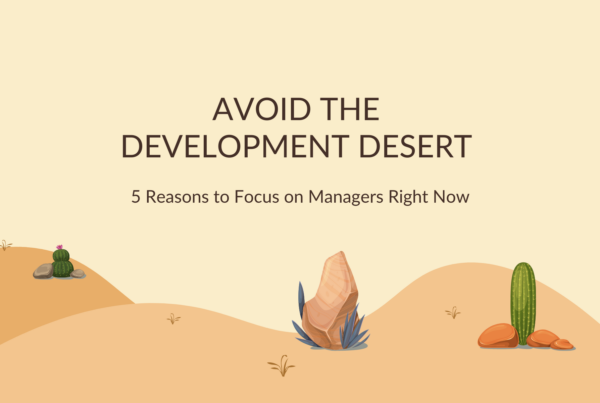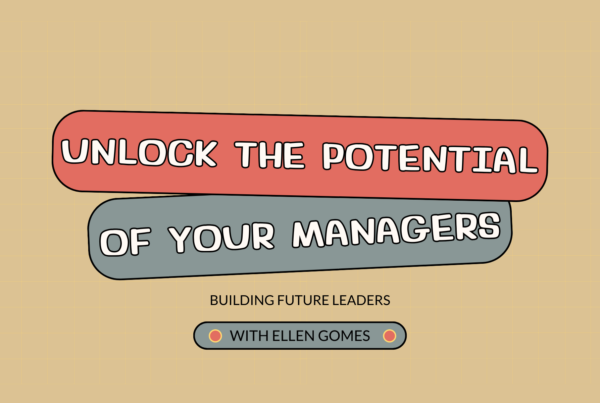Welcome to Leading by the Numbers, our new leadership data analytics column!
I will use this space to share exciting findings from our data related to leadership and coaching. To those of you who have already decided I’m full of it because leadership data analytics can’t possibly be exciting, I hope to make converts of you all. To the rest of you, glad to have found some fellow members of nerd nation 🙂
One of the best parts of our platform is that it collects an incredible amount of data on both leadership and coaching. This data applies not just to our clients, but also to leaders at large.
For instance, can a leader become more adaptable over time? Which personality types respond best to coaching? How many coaching sessions are optimal between evaluation periods? How do different personality traits relate to leadership skills?
In the coming posts, I will answer some of these questions and many others by combining our data with research by others.
Who is Rachel Habbert, and why should I believe her?
My name is Rachel Habbert, and I’m the resident Senior Behavioral Scientist at Torch. I received my Undergraduate and Masters degrees in Symbolic Systems from Stanford (told you I was a nerd), and spent the next five years working in implementations and product support at a startup. I have always been interested in how people learn, how we exercise self-control (or more often than not, why we don’t), and how we make strides toward self-improvement. Organization-building fascinates me. That is what drew me to startup life right out of college, and again here at Torch.
Values Taken from Ultimate Frisbee
While I spend my weekday hours mired in data, my competitive ultimate frisbee habit (yes, that’s a thing!) consumes most of my free time. After picking up the sport in college and winning two national championships along the way, I went on to help found a women’s team in the Bay Area called Nightlock. I played with Nightlock for seven years, finishing top ten in the country each year, before “retiring” into a more casual women’s team this year.
I loved the challenge of building a team from the ground up—defining our values, creating an intentional culture, strategizing for specific opponents, and figuring out how to best utilize the unique skills of 25 individuals—but it certainly came with its ups and downs.
That experience only heightened my need to understand human performance, both athletic and professional. How can we maximize individual performance? How does individual performance translate to group performance? How do the mental aspects of performance interact with the physical skills necessary to achieve your best outcomes? These questions may never be resolved to my satisfaction, but I will always enjoy searching for their answers.
Combined Passions = Management of Organizations
I combined all these passions—human behavior, team-building, and performance—into a PhD in Management of Organizations at Berkeley-Haas, where I spent the last four years studying behavioral science and organizational behavior. My work culminated in a dissertation on momentum, self-efficacy, and performance.
And here’s where data can be exciting: my dissertation research revealed that people think they can create momentum and self-efficacy by starting with their easiest tasks and “building up” to their hardest ones. However, the opposite is more often true. Most people benefit from getting their hardest tasks out of the way early, allowing them the pleasurable experience of “coasting.”
Often, simply the perception of momentum will lead people to expect improved performance in both themselves and others, though my research does not show a difference in actual performance. Even if performance itself does not measurably improve, perceived momentum can still lead to positive outcomes such as higher motivation, more confidence, and a generally better experience. Could be pretty handy in your day-to-day life, huh?
Solving Real-World Problems at Torch
After finishing my PhD, I knew I wanted to apply the knowledge and skills I’d learned to meaningful real-world problems. I yearned to work at a mission-driven company based on the most relevant psychological science. My dream was to work in a field that focuses simultaneously on the details of individual experiences at work, as well as the big picture of organizational cultures. I feel unreasonably lucky to have found everything I was looking for at Torch.
Thanks for coming along on this new and exciting journey with me. I can’t wait to share the deep insights I discover at Torch and to help you become a more impactful leader. To learn how Torch’s leadership development platform can support your goals, request a demo below.



